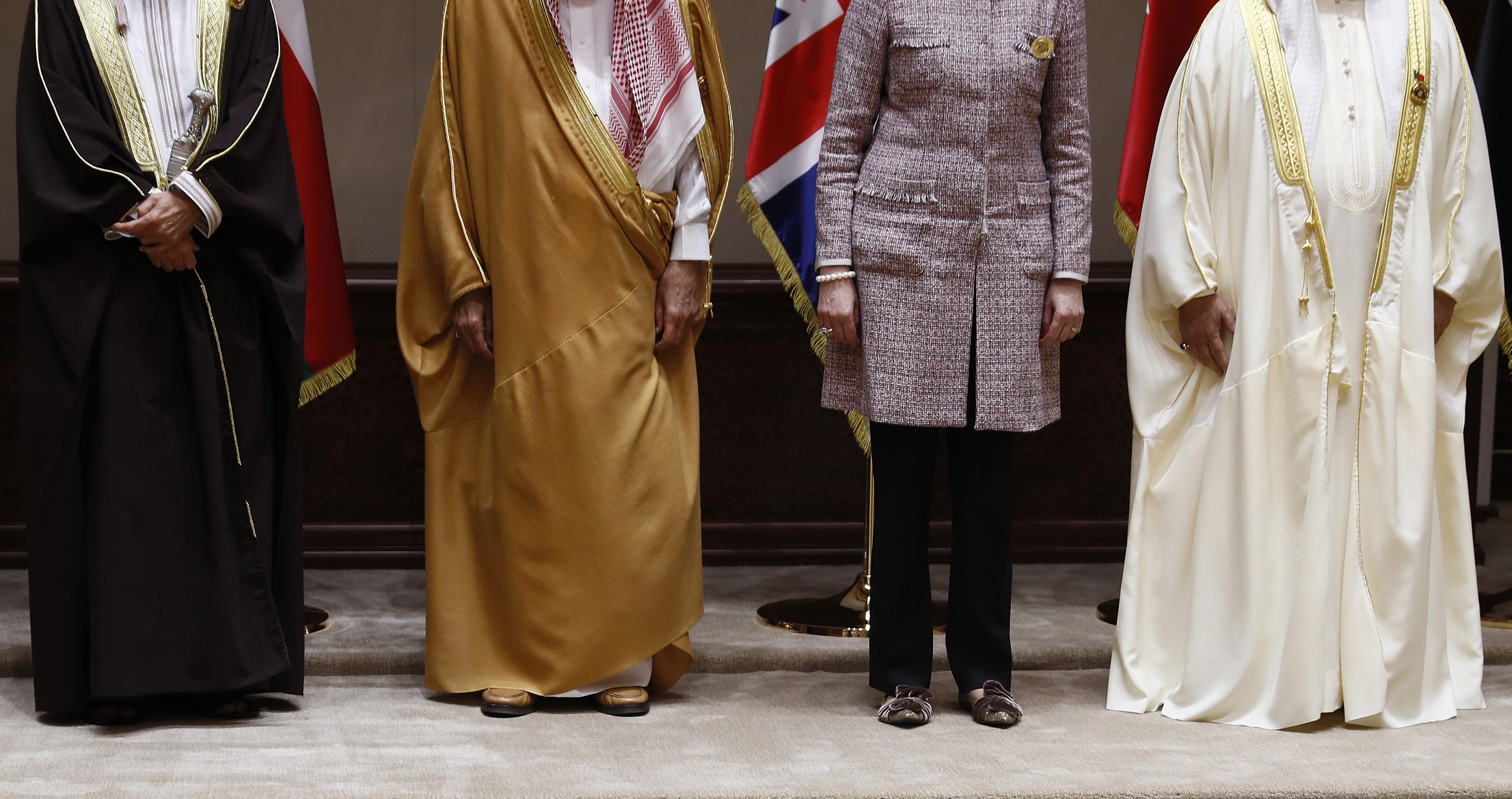أمير قطر لن يحضر قمة الرياض.. كان هذا عنوان خبرٍ انفرد به موقع "روسيا اليوم" قبل ساعات من قمة خليجية تكمن أهمية انعقادها أنها تأتي بالتزامن مع أكبر أزمة تشهدها تلك منطقة الخليج منذ عقود.
لكن هذا "الانفراد" كان بمثابة ضربة لمصداقية "روسيا اليوم" ومهنيتها، حيث اعتمد الموقع على تحليل كتبه إعلامي قطري على "تويتر" قدّر من خلاله أن أمير قطر لن يحضر القمة الخليجية الـ39.
سببت هذه التغريدة حرجاً للإعلامي القطري، حتى أزال تغريدته وطالب الموقع بحذف الخبر، وهو ما حدث فعلاً.
"خطيئة" روسيا اليوم، يمكن قراءتها من زوايا عدّة، أوّلها: التهاون في التعامل مع المصادر الصحفية لجذب قراءات أكثر، وثانيها: صعوبة وصول الصحفيين للشخصيات السياسية وأزمة المصادر في منطقة الخليج.
فهم طبيعة دول الخليج
قبل الدخول في تفاصيل هذا الموضوع، تجدر الإشارة إلى طبيعة الحياة السياسية والحكم في الخليج، وإلقاء الضوء على أسباب صعوبة وصول الصحفيين للمسؤولين والوزراء للحديث عن قضايا مفصلية ومهمة.
منذ قيام مجلس التعاون الخليجي في العام 1981، لم تتعرض الدول الخليجية لكوارث سياسية كبيرة باستثناء غزو الكويت في العام 1990، ويمكن القول إن نهج الحكم التقليدي والملكي أو شبه الملكي القائم على الإنصات للحكومة والإدارة في منطقة الخليج قد حقق نتائج طيبة في دول ذات كثافة سكانية منخفضة، وشعبها راضٍ نسبياً على آلية الحكم، وطريقة توزيع الثروة على المواطنين.
وقبل أن تبدأ ثورات الربيع العربي ومن ثم أزمة سحب السفراء في العام 2014، ومقاطعة وحصار دولة قطر في العام 2017، ومن ثم "حرب الناقلات النفطية"، كانت الأخبار القادمة من منطقة الخليج بروتوكولية بحتة، حيث لا تتجاوز أخبار استقبال الزعماء وتبادل التهاني والتبريكات في المناسبات.
لكن الوضع تغير الآن، وبدأ الصحفيون العرب بمحاولة الحصول على مواقف أو تصريحات من شخصيات سياسية حول قضايا مهمة، إلا أنهم ما زالوا يواجهون صعوبات كبيرة.
ما هو البديل وما الحل؟
"البديل يكمن في إيجاد مصادر خليجية تعيش خارج دول مجلس التعاون الست، مع إخفاء هويتهم، وفي حال عدم توفر هذه المصادر، يمكن اللجوء إلى الوكالات الأجنبية والاستعانة بتصريحات ومقالات عن الخليج"، بحسب رأي الصحفي أحمد علي حسن.
ويقول حسن الذي عمل في موقع "الخليج أونلاين" إن "المشكلة ليست في المصادر السياسية فحسب، بل كنا نواجه مشكلة في الحديث مع شخصيات حول مواضيع اقتصادية أو اجتماعية وحتى فنية".
وحاول "الخليج أونلاين" مراراً إعداد دليل خاص بهواتف الشخصيات في الخليج لكن من دون جدوى، "وفي غالب الأمر كنا نواجَه بالرفض أو عدم التعاطي معنا خاصة بعد أزمة يونيو 2017"، يضيف حسن لـ"مجلة الصحافة".
وربما يوضح هذا المثال معضلة المصادر في الخليج، إذ تلجأ بعض وسائل الإعلام إلى آراء وتحليلات الكتاب والإعلاميين الخليجيين في قضايا مهمة وحساسة لتحولها إلى أخبار.
ويعلق حسن على ذلك بالقول: "المشكلة الأكبر أن مفهوم التقرير بدأ ينحرف عن أصله بعد اللجوء إلى محللين وأخذ تصريحاتهم على أنها مصدر معلومة وهي في الأصل قائمة على الاستشراف".
"إذا كان لا بد من طرح حل للمشكلة، فمن المهم أن يذهب مجلس التعاون الخليجي بأدواته الإعلامية إلى إصدار دليل هاتف إعلامي وتعميمه على الصحفيين". يضيف حسن.
وللتحايل على هذه المشكلة أيضاً، عمد بعض الصحفيين إلى تجهيل المصادر، أو الحصول على تصريحات من مصادر مجهولة، لا يُعرف مدى دقتها، وأصبحت تلك المصادر من القضايا الشائكة في الحقل الإعلامي العربي.
ويجادل البعض أن "المصدر المجّهل" لا بد منه في بعض الحالات من أجل حماية المصادر وعدم الإضرار بها، لكن يرى قسم آخر أن كثرة الاعتماد على المصادر المجهولة قد يُفقد وسائل الإعلام مصداقيتها.
وفي الحالة الخليجية، اعتمدت الكثير من وسائل الإعلام في السنوات الأخيرة على تسريبات حساب على "تويتر" يدعى "مجتهد" ويكشف بعضاً من أسرار العائلة الحاكمة في السعودية، وبالرغم من ثبوت مصداقية بعض تسريباته، لكن لا يعرف ما إذا كانت تلك التسريبات عبارة عن معلومات أم توقعات وتحليلات.
ماذا عن الصحفيين الخليجيين؟
تنص أغلب الدساتير الخليجية على حرية التعبير ولكن هناك رقابة تنظيمية وسياسية قوية على محتوى وسائل الإعلام، إذ يجب أن تكون المنشورات مرخصة وتتبع الإرشادات الرسمية بشأن إعداد التقارير، وتخضع بعض المنشورات للرقابة قبل النشر، في حين يميل الصحفيون إلى ممارسة الرقابة الذاتية، خوفاً من أي إجراء قد يتخذ بحقهم.
في الإمارات على سبيل المثال، معظم وسائل الإعلام المحلية هناك تديرها شركة أبوظبي للإعلام المملوكة للدولة، ومؤسسة دبي للإعلام (يقال إنها شبه رسمية)، وهذا ربما يقلل من سعي الصحفي الخليجي لمحاولة التواصل مع مسؤولين، إذ أن الأخبار تأتي على شكل بيانات أو تعليمات، بحيث تصل جاهزة دون أن يبادر الصحفي بالسعي خلفها، فضلاً عن منع بعض دول الخليج صحفييها من التواصل مع رجال السياسة في دول خليجية أخرى، بعد الأزمة الأخيرة.
وتظهر تقارير اليونسكو أن 85 % من المعلومات المتداولة في وسائل الإعلام في البلدان النامية، بما في ذلك وسائل الإعلام العربية، يتم تصديرها إليهم بواسطة وكالات الأنباء الغربية.
ويلاحظ أن المسؤولين في دول الخليج يظهرون في مقابلات مع وسائل إعلام دولية، أكثر من نظيرتها العربية، وخاصة في حديثهم عن سياسات بلادهم أثناء زياراتهم الخارجية، وهو ما يساهم في تعقيد مسألة انفراد وسائل الإعلام العربية بأي أخبار مهمة تصدر من دول الخليج.




















![Palestinian journalists attempt to connect to the internet using their phones in Rafah on the southern Gaza Strip. [Said Khatib/AFP]](/sites/default/files/ajr/2025/34962UB-highres-1705225575%20Large.jpeg)




















